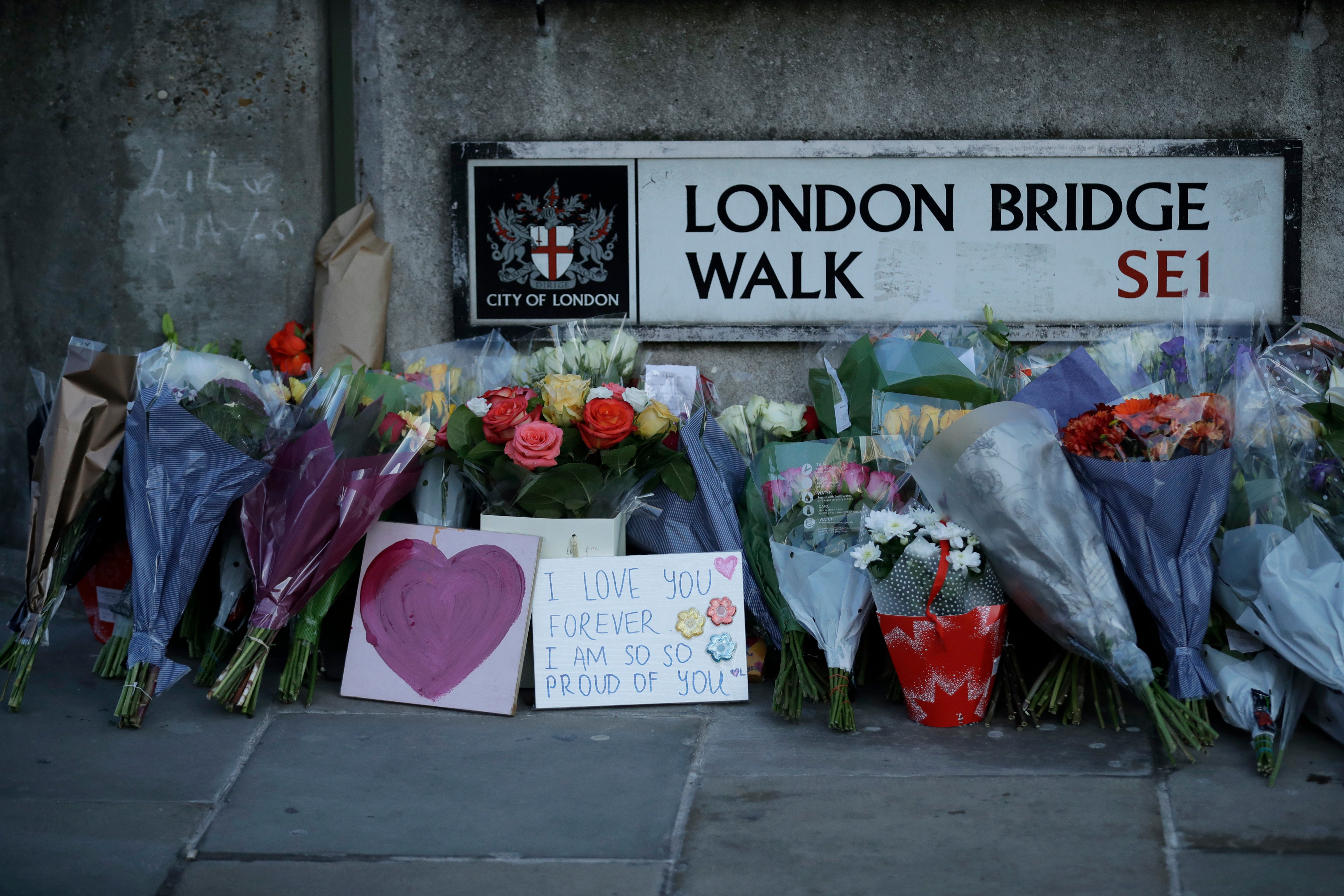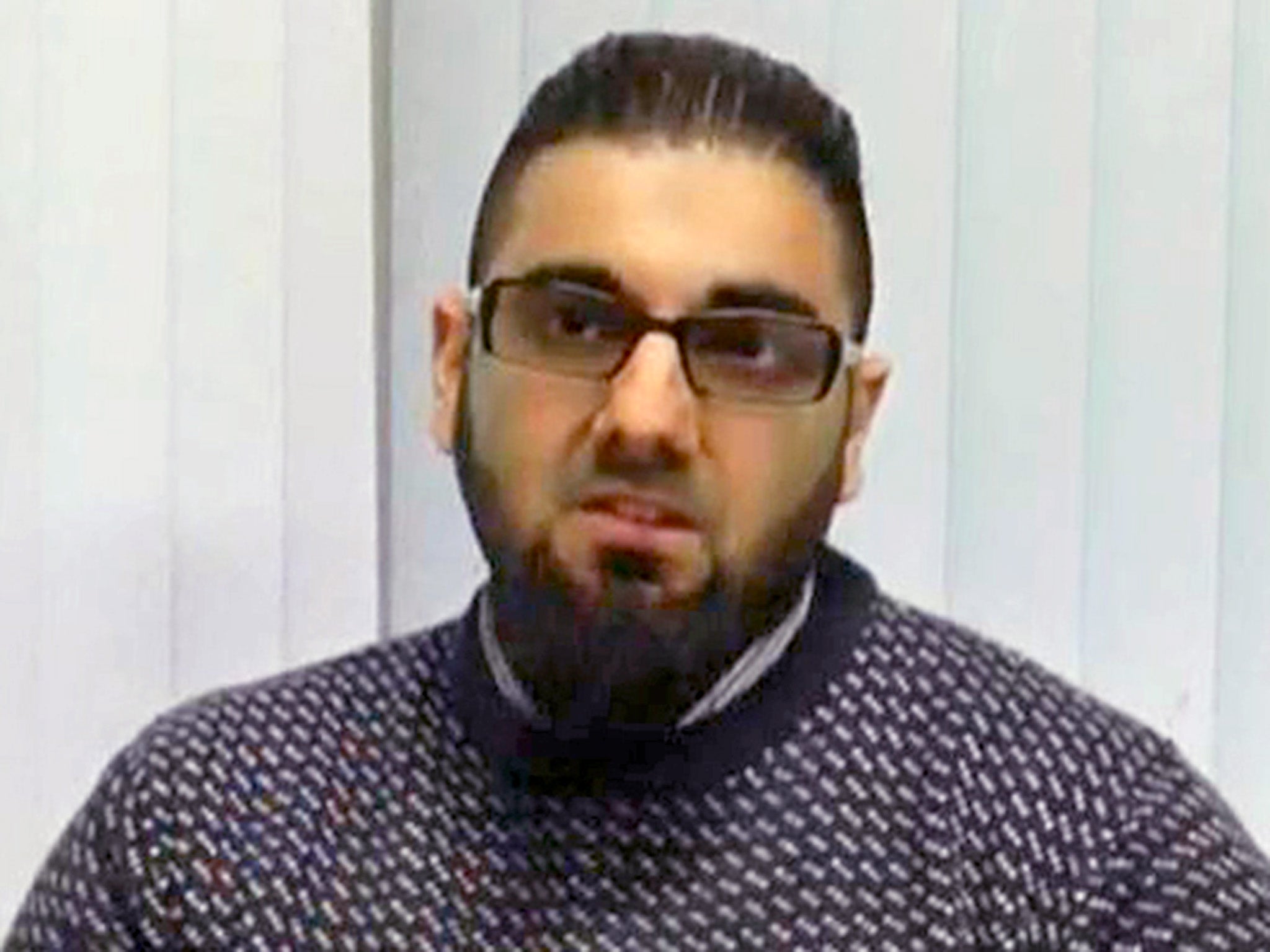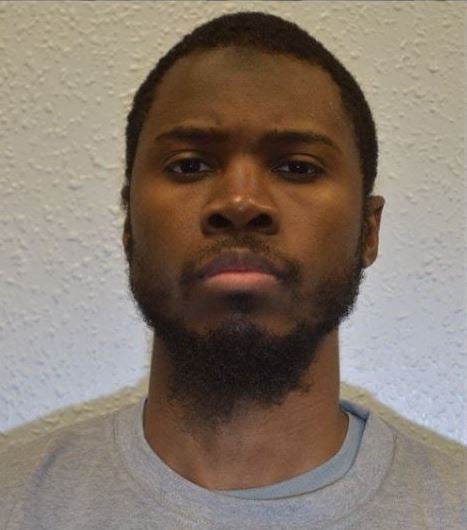Was Isis claim of responsiblity for the Fishmongers’ Hall attack another fake?
MI5 says there was ‘nothing to support’ the statement, although evidence suggests Usman Khan may have been partly inspired by terror group, writes Lizzie Dearden

There was “nothing to support” Isis’s claim of responsibility for a London terror attack that left two victims dead, the security services have said.
Usman Khan launched a knife rampage at a prison rehabilitation event at Fishmongers’ Hall on 29 November 2019.
The 28-year-old, who was wearing a fake suicide vest, was chased onto London Bridge by attendees and shot dead by armed police.
The following day, Isis released a claim of responsibility on its official propaganda channel. The short statement contained no details and only used a generic form of words in Arabic calling Khan a “soldier of the Islamic State”.
A MI5 witness told the inquests into his victims’ deaths there was “nothing to support that claim”, adding: “It was quite a frequent tactic that they used with any successful attacks around the world at that time.”
Isis has claimed some international attacks after receiving recorded or written pledges of allegiance from terrorists, but MI5 said there was nothing to suggest Khan communicated his plans to anyone else.
Counterterror police who investigated the Fishmongers’ Hall attack said they agreed with MI5’s assessment of the Isis claim.
Near-identical statements have been issued by Isis following several UK terror attacks and many around the world.
Generic statements were also used following the 2017 attacks in Westminster, London Bridge and Parsons Green, and the 2020 Streatham stabbing.
Raffaello Pantucci, a senior associate fellow at the Royal United Services Institute, said that if Isis had any communication with Khan the group would have “shown it off” using extra material.
He said the terrorist group’s propagandists may have seen online chatter about the Fishmongers’ Hall attack among supporters and decided to claim it based on news reports.
“They possibly didn’t have a physical link to Khan,” he told The Independent.

“The question is – if a guy does an attack which is clearly in an Isis style, does that make it Isis or not?”
Inquests into the Fishmongers’ Hall attack were told that police had investigated Khan’s potential links and communications before his rampage.
He was a former member of Anjem Choudary’s banned al-Muhajiroun Islamist network and was jailed for planning to set up a terrorist training camp in Kashmir in 2012 – before Isis formed.
However, the inquests heard that Khan collected newspaper cuttings “relating to Isis, terrorism and jihadists” during his time in jail.
Numerous members of al-Muhajiroun joined Isis abroad and launched terror attacks, including the Lee Rigby murder, Westminster attack and London Bridge attack.
While being held at the high-security HMP Whitemoor, Khan became a senior member of an extremist gang including jailed attack plotter Brusthom Ziamani.
Ziamani launched an attack inside the jail, where he and another inmate attempted to murder a prison officer, weeks after the Fishmongers’ Hall attack.
Their trial heard that Ziamani had access to a smuggled SD card containing Isis propaganda videos, which he translated and disseminated to other inmates.
It remains unclear whether Khan, who also collected unspecified “handwritten religious materials” in his cell, also had access to Isis propaganda.

Khan’s attack also used modus operandi that had been popularised by previous Isis-inspired attackers, including knives and a fake suicide vest.
Mr Pantucci said there was debate between experts over whether attacks are only Isis-linked if the group has a direct connection to terrorists, or if inspiration of any kind is sufficient even without contact or communications.
He added that when attacks that were directed by Isis, such as those in Paris in 2015, were claimed there was a “method to their madness” and verification processes.
“But as time went on it stopped and they started to say anything that draws attention to them is good,” Mr Pantucci said.
“I think there was a point where they said it doesn’t really matter if someone has a direct link to Isis.”
In 2014, a speech by Isis's spokesperson called for indiscriminate attacks on all non-Muslims, particularly in countries including Britain in the US-led coalition bombing its territories.
Isis propaganda called for supporters to attack soft targets, such as shopping districts, with low security and provided guides on different methods.
Such attacks have been difficult for security services to intercept, because of the speed of planning and use of everyday items like the kitchen knives used by Khan.
Isis increased calls for international attacks as it lost territory from its self-declared caliphate, which was defeated in March 2019.
Mr Pantucci said the group would continue to make opportunistic claims for attacks, even if it risks being disproved at a later date.
“It draws attention to them and that’s the ultimate goal,” he added. “It doesn’t matter what the general public thinks, just their community of followers. It says ‘Isis is still here, it’s still a thing’.”



Join our commenting forum
Join thought-provoking conversations, follow other Independent readers and see their replies
Comments